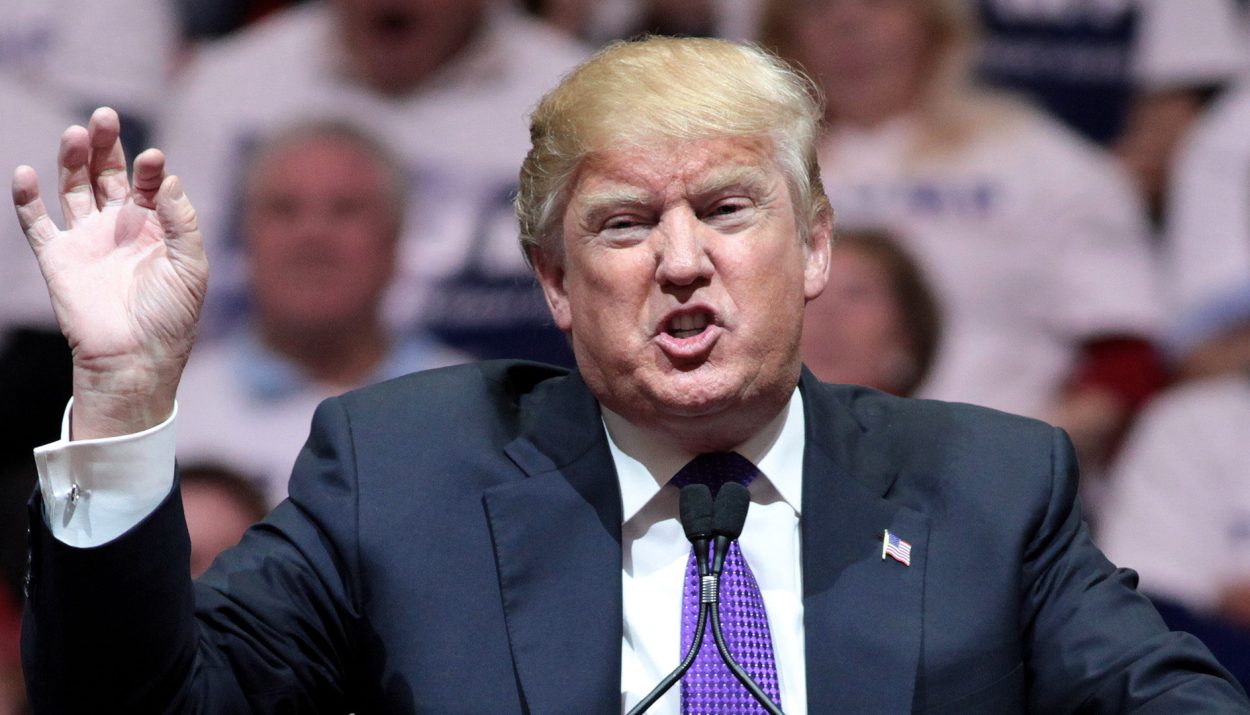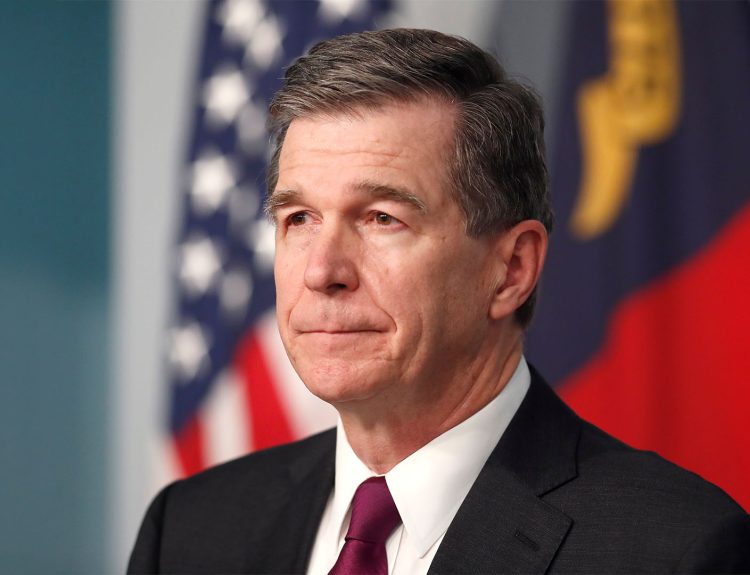Donald Trump has been in the headlines every single week over one thing or another ever since he first announced his run for president in 2015. His presidency was full of bombastic statements and controversial takes, and the headlines have not stopped in the years since he has left the White House. The newest development in Trump’s personal life follows, unsurprisingly, a lawsuit.
Trump In the Courts
Trump has engaged in his fair share of litigation against various peoples and entities in his time as both a businessman and a politician. Currently, he is under indictment for more than 90 felony charges across various crimes, both state and federal, the first time that a former president has ever been legally charged with a crime.
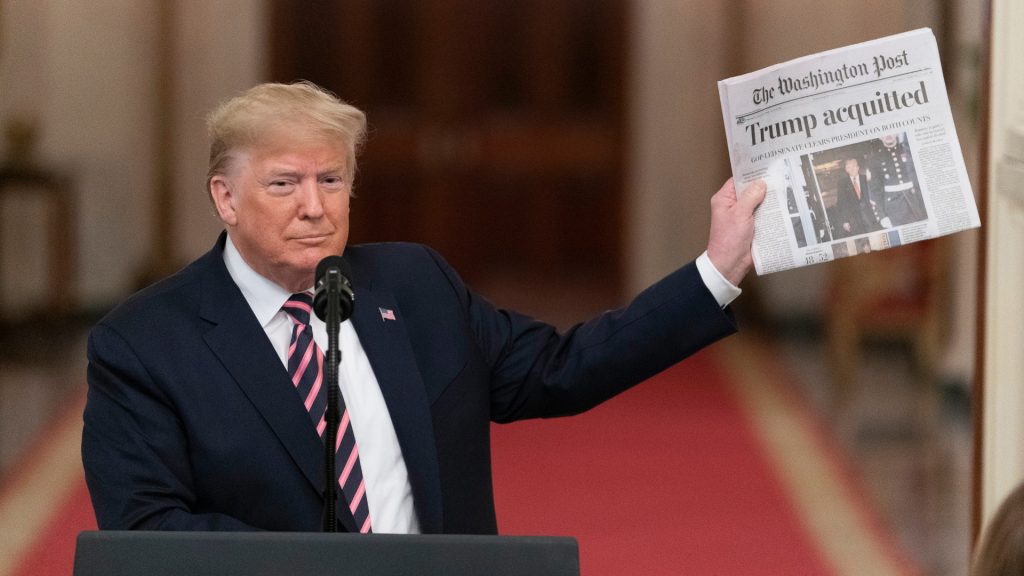
The major headlines about his criminal charges are not the only legal battles that Trump is currently undergoing. He is engaged in multiple different civil litigations against different businesses, people, and entities, and some of the judgements have started to come down, and not in his favor.
One Lawsuit in Particular
One lawsuit in particular that did not rule for the former president concerns Donald Trump and the New York Times. Trump has a history of not liking the press very much, with many posts on his social media site, Truth Social, complaining that journalists are not “being fair” to him.
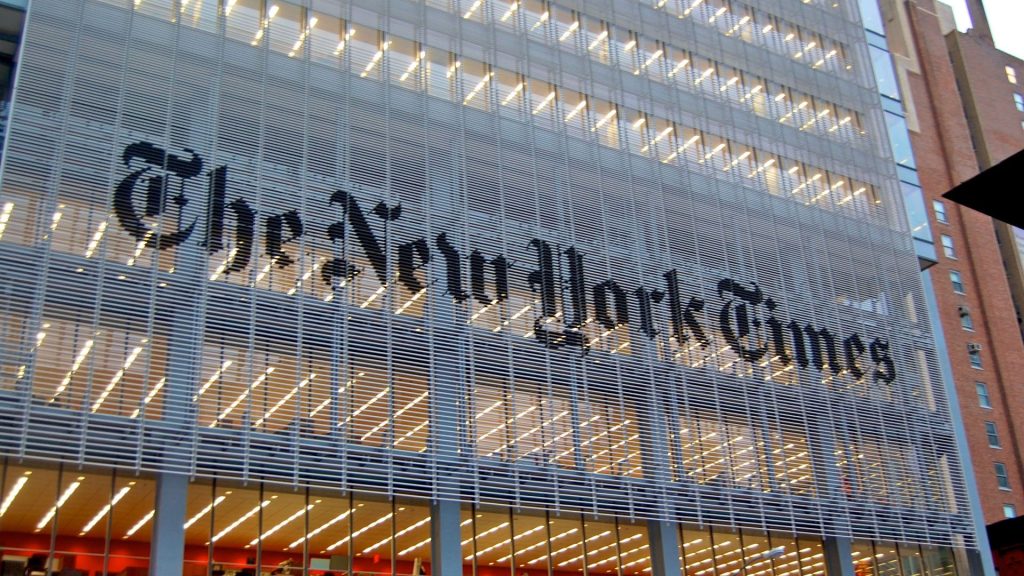
With the New York Times, Trump took the matter one step further and actually sued both the paper and several reporters over a series of reporting that was done in 2018. The suit focused on an investigation into his taxes and finances, the reporting of which ultimately won the journalists a Pulitzer Prize.
An Investigation into Trump’s Finances
The 2018 investigation was done by journalists Susanne Craig, David Barstow, and Russ Buettner. It involved a deep look into Trump’s financial history, including his history of financial tax dodging with his father, Fred C. Trump.
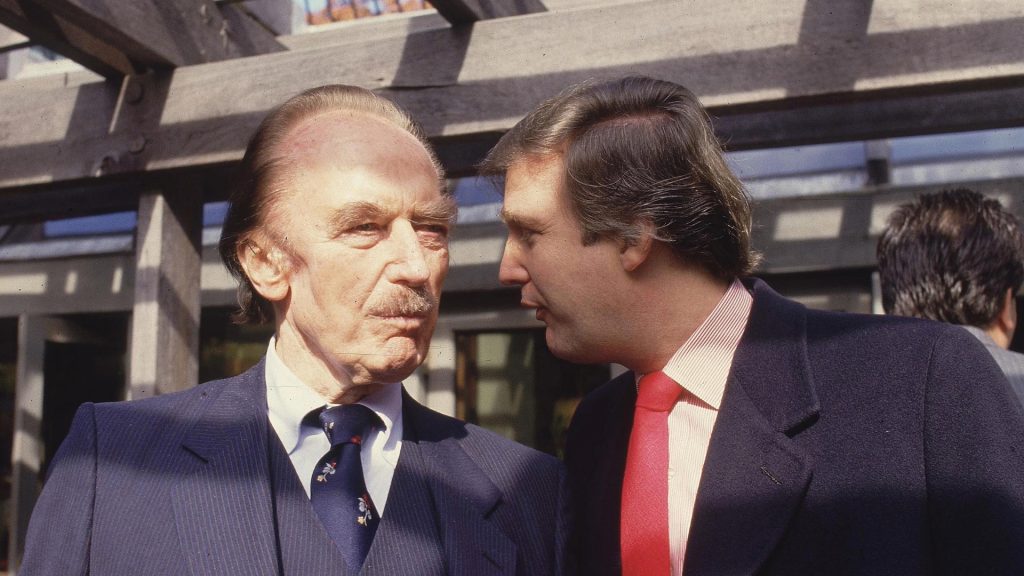
The reporting alleged that Trump engaged in an extense tax evasion scheme in the 90’s, which greatly increased the wealth that Trump received from his father. The amount that he earned from these shady dealings was listed as at least $413 million in today’s dollars.
Trump Is Not, In Fact, a Self-Made Billionaire
The blatantly undermines a statement that Trump has made for years, as well as during the entirety of his 2016 run for presidency. Trump claimed to be a self-made billionaire, who received little assistance from his parents in his pursuit of wealth.
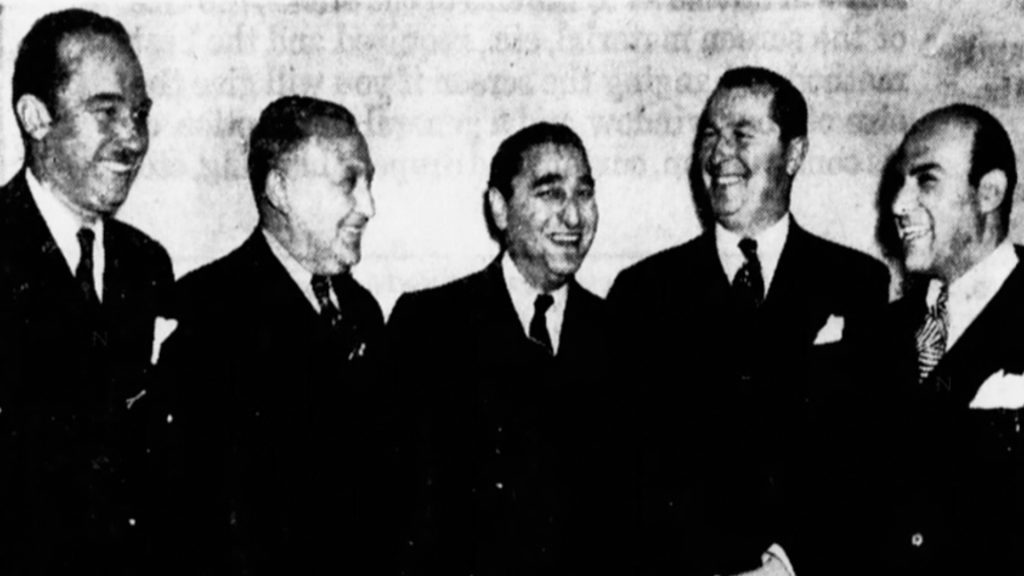
The paperwork filed with the IRS and other various organizations refutes this fact, as was revealed in the 2018 reporting. Evidently, Trump helped his family to take millions of dollars of improper tax deductions, and his parents transferred more than $1 billion in wealth to their children.
The Trumps All Evaded Taxes – According to the Paperwork
The truly shocking reveal of the reporting was the uncovered fact that the Trumps only paid approximately 5% of their wealth to the IRS, despite residing in an income bracket that would have required up to 55% of their income.

This revelation throws into question Trump’s refusal to release his tax returns, which is a practice that has been standard for presidents for decades. While it isn’t a necessary part of holding the Oval Office, the practice of transparency is always a positive one for the man who holds the highest office in the country.
Trump Was Deeply Unhappy
Trump and his family were in uproar after the reporting came to light. It was released halfway through Trump’s presidency, and threw into question a great deal of the claims that he made in order to win people’s trust and gain the Oval Office.
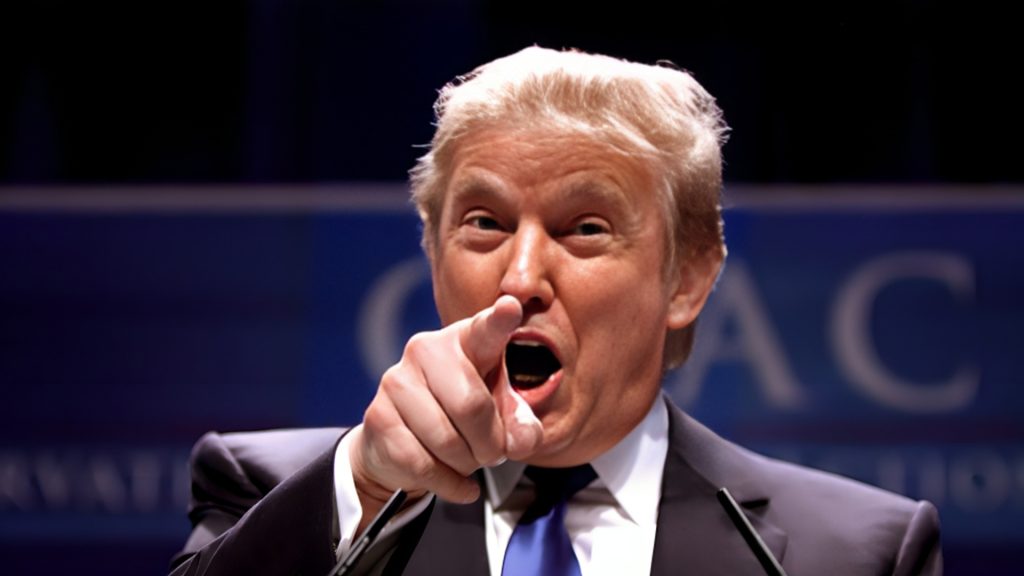
Trump sued the New York Times and the reporters who wrote the piece in 2021 after he left the White House. The lawsuit was filed under, among other things, the claim that the journalists had breached confidentiality that Mary Trump, Donald Trump’s niece, had agreed to in a settlement contract that was signed in 2001.
The Claims Were Dismissed
The lawsuit was brought before a judge in 2023, where the claims against the New York Times and the journalists were dismissed without prejudice. Trump’s claims that the reporters had violated his right to privacy with their reporting are antithetical to the intent of the first amendment.
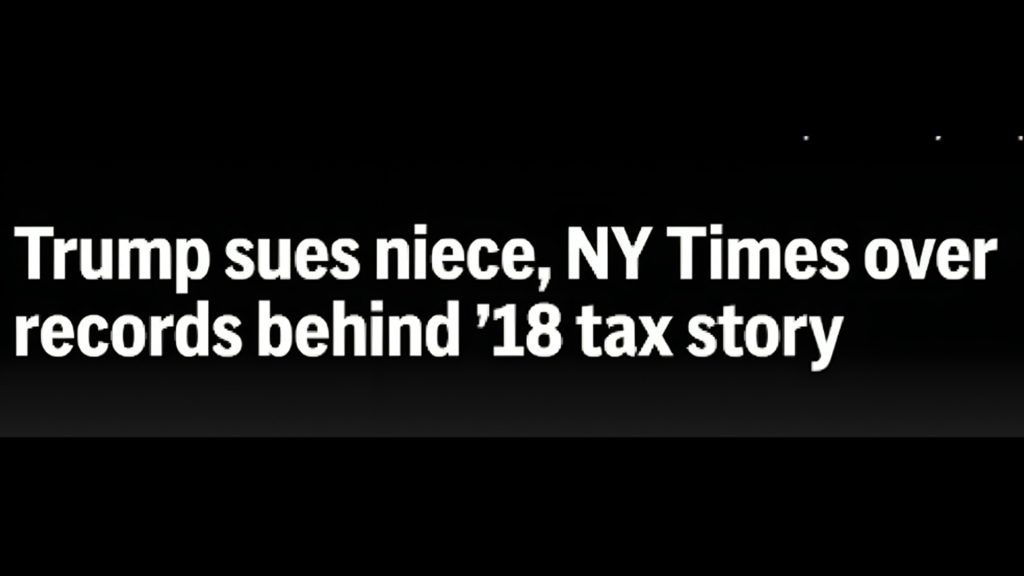
The judge agreed with this concept. In his dismissal of the case, he stated that the journalists conduct was protected by both the New York and federal constitutions, and that Trump had no standing in bringing the lawsuit against the journalists.
Journalists Have a Constitutional Duty
The judge went on to state that the purpose of the reporting, particularly at the time that the story came out, was to reveal details of a story with a great deal of public interest. This provides justification as a point of law.
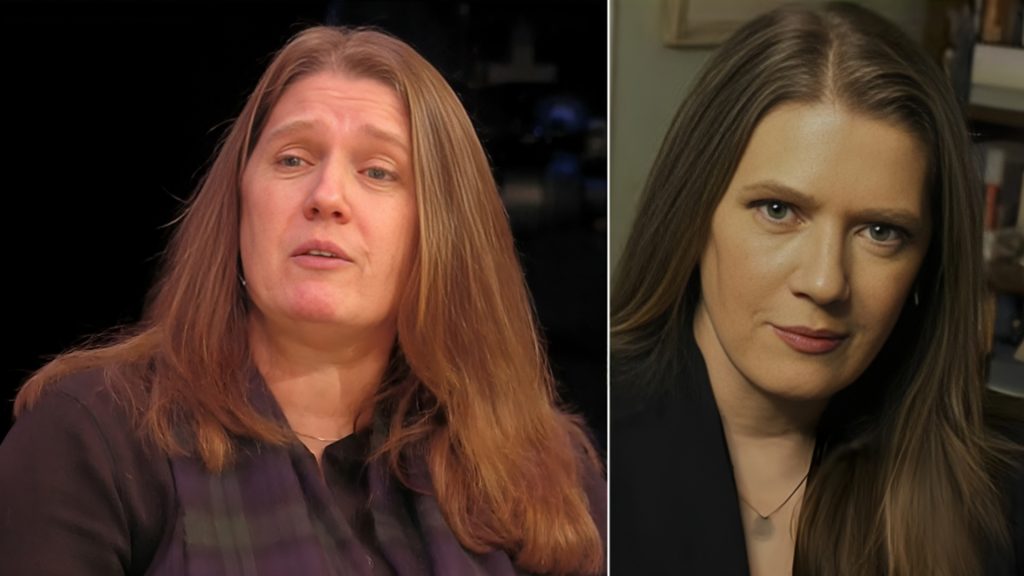
Mary Trump was not dismissed from the lawsuit at that point, and the litigation against Trump’s niece is still making its way through the court system. In his judgment, though, the judge ordered Trump to pay the New York Times’ and the journalists legal fees alike.
Stopping Trump’s Intimidation
A recent change to New York statute is the reason that the lawsuit was dismissed so quickly and without prejudice. New York has a law called the anti-SLAPP statute, which stands for Strategic Lawsuits Against Public Participation.
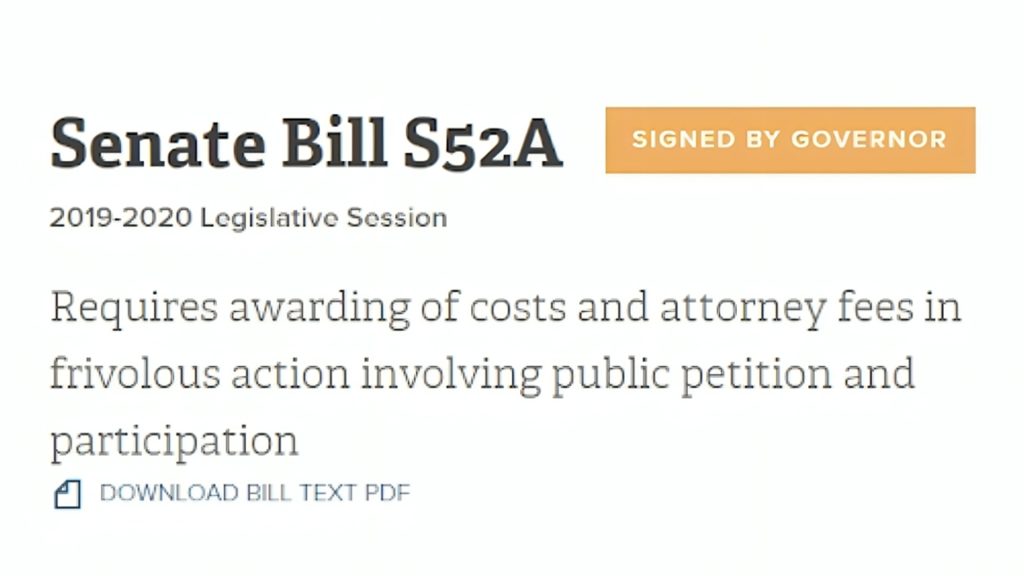
SLAPP lawsuits are also known as intimidation lawsuits, and they are intended to censor, intimidate, or silence critics through litigation. They mean to burden defendants with the cost of a legal battle until they concede or give up their defense altogether.
Changes to the Anti-SLAPP Statute
New York has had anti-SLAPP laws in place since the 90’s, but prior to 2020, the law was fairly narrow. It only covered plaintiffs who were seeking public permits, zoning changes, or other entitlements from a government body.
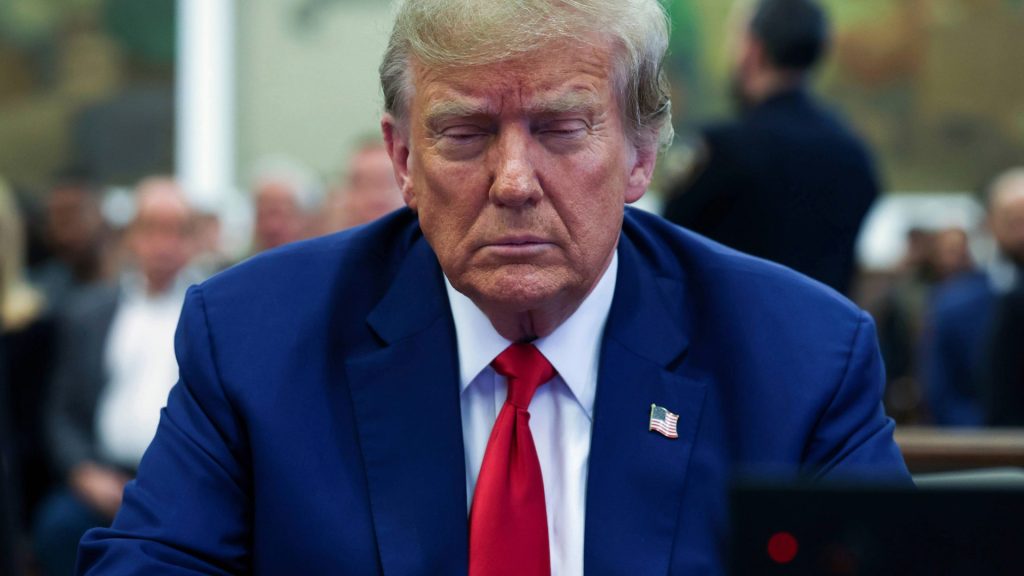
After 2020, though, the New York law significantly expanded to include any communication in a place open to the public, or a public forum in connection with an interest of broad public interest. In this way, both the New York Times as an institution and the subject of Donald Trump are protected under the statute.
The Journalists’ Actions Were Protected
The expansion of the law is, ironically, in part due to Donald Trump’s previous actions regarding lawsuits. Trump has a history of engaging in lawsuits that have little to no legal merit in order to intimidate witnesses and organizations that he has a problem with, and this lawsuit was no different.

The actions of the New York Times and the journalists were, by state and federal law, protected under the concept of freedom of speech and freedom of the press. The fact that Trump didn’t like the fact that they dug up his financial history is not cause for a lawsuit on the face of it, a fact that the judge emphasized when he stated that journalists have constitutional protection for standard fact gathering and investigation.
Trump Was Ordered to Pay
After the judge handed down his decision regarding Trump’s lawsuit and ordered that he pay the legal fees, the only judgment left to hear was exactly how much Trump would be ordered to pay. The judgment came down recently, and it doesn’t look good for Trump.
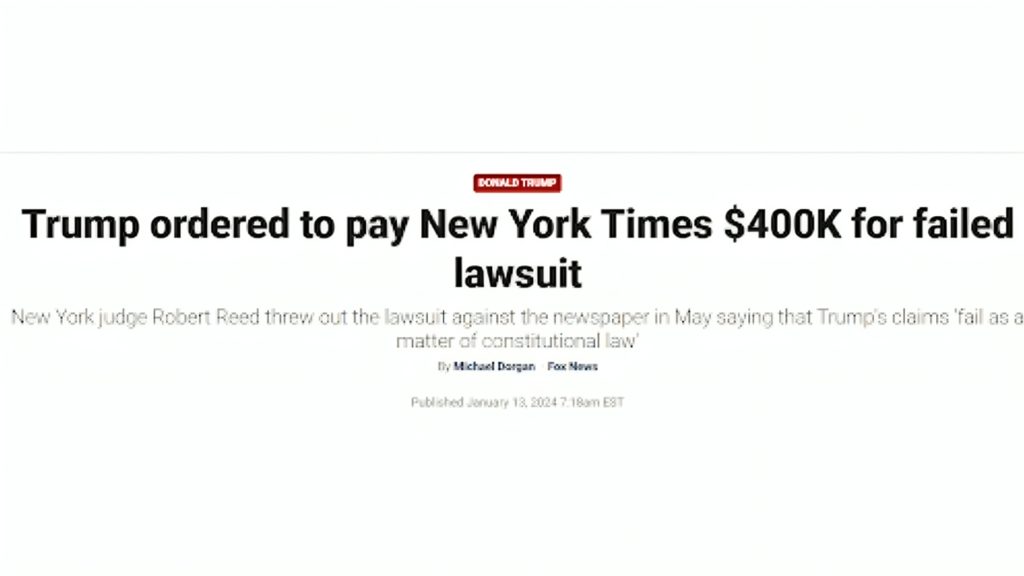
The decision, which came down in the first week of 2024, ordered Trump to pay nearly $400,000 in fees to both the journalists and the New York Times itself. The judge explained in his judgment that the complexity of the issue made the request reasonable from the New York Times, to pay legal fees and damages to the journalists.
Trump’s Immediate Request
Trump’s immediate response was to ask for a lower fee, or to have the fee waived altogether. The case was already dismissed, and Trump’s financial struggles have been well documented since the 2018 piece that this particular trial was about.
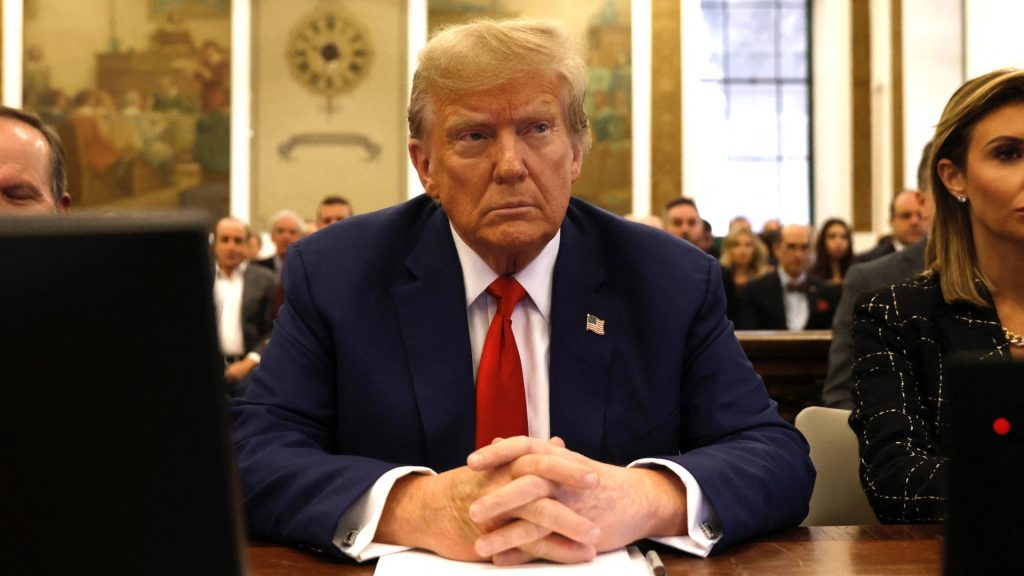
The judge did not budge on his judgment, though. Trump was ordered to pay over $229,000 to Suzanne Craig and Russell Buettner, and ordered to pay $162,717 to journalist David Barstow.
Cheers from the Peanut Gallery
The defendants in the case were thrilled about the outcome. Craig took to X, formerly known as Twitter, to report on the judgment, informing her audience that the judge had ordered Trump to pay the legal fees of the New York Times and journalists in a lawsuit that she stated was “frivolous.”
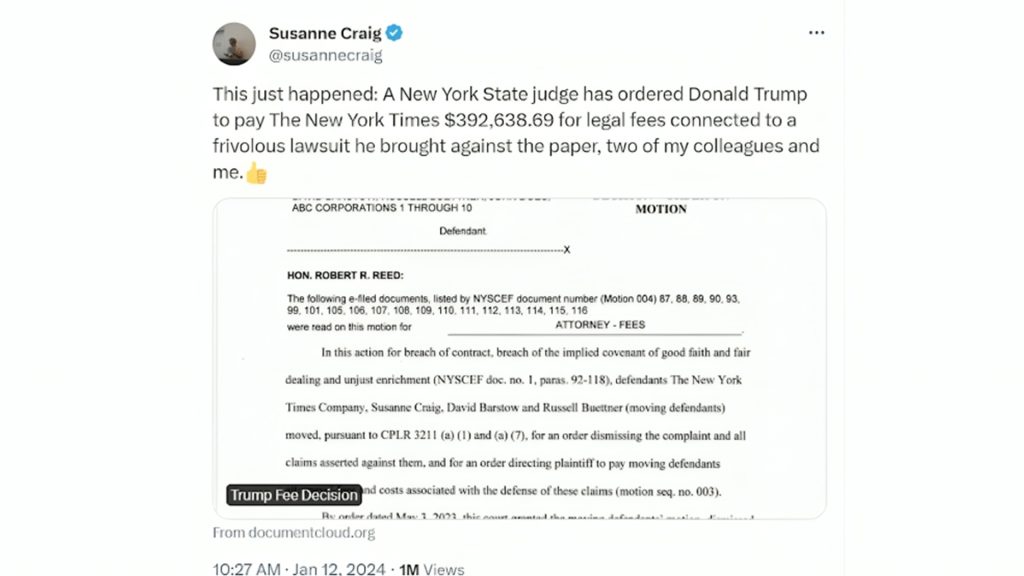
The comments in the post on Twitter were largely positive. It’s a statement on how strongly many Americans feel about the sanctity of free speech that such a large judgment was seen relatively positively. Of course, there were also those who grumbled that the courts were being unfair to the former president.
Trump’s Team Responds
Trump’s lawyer Alina Habbat released a statement after the judgment was handed down. She stated that she was disappointed with how the decision turned out, and that she would be consulting with her client before determining how and if to proceed. Trump himself did not comment on the judgment.
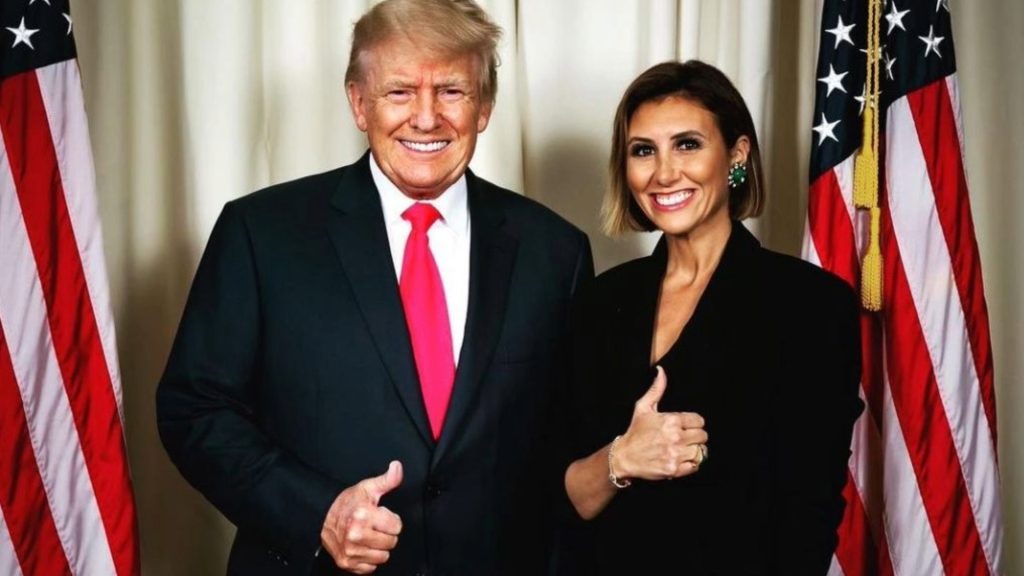
That is not the final story of the case, though. The lawsuit against the other defendant, Mary Trump, continues through the legal system, and in a recent decision, the judge denied Ms. Trump’s request to put the case on hold while she appeals the former July decision.
Stuck in Limbo
Mary Trump is Donald Trump’s niece, and she claims that the lawsuit against her is a tactic to prevent her and other people from criticizing the former president in the future. Ms. Trump is an outspoken critic of her uncle, and this recent lawsuit is far from the first time that the two have met in the courtroom.
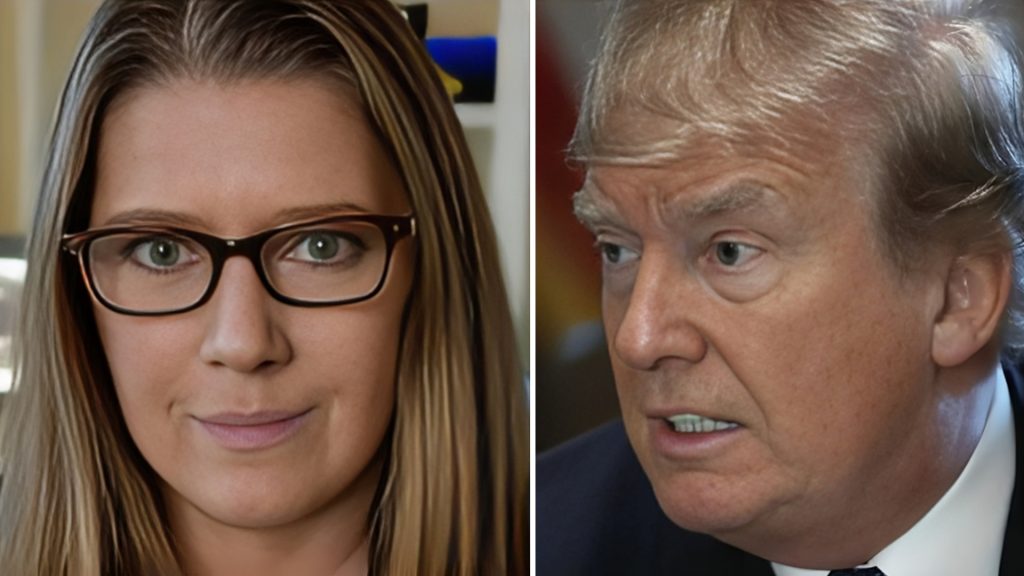
Mary’s lawyers refused to comment on the judge’s decision to deny her request for a hold, but Habbat stated that she was pleased that the courts were allowing the lawsuit to proceed as filed. She went on to say that the denial “affirmed the strength of their claims” and that she was pleased that Mary Trump wouldn’t avoid accountability.
A Win For Constitutional Rights
Trump’s legal woes will continue to provide fodder for the media for months and years to come as he works his way through the various lawsuits and charges, both against him and for him. The New York Times judgment, while some see it as unfair, is actually a comforting confirmation of the power of the constitutionage]
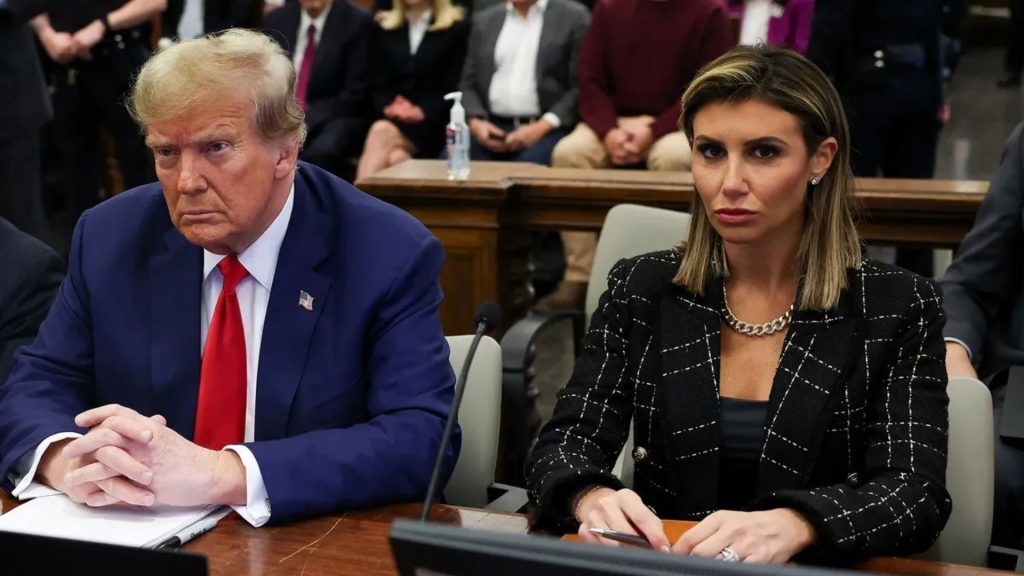
Journalists have a right to be able to report on matters of public interest, no matter who the public interest happens to be about. The judgment in favor of the NYT journalists reaffirms this fact, and will allow for honest and fair reporting on all manners of topics in the future.

